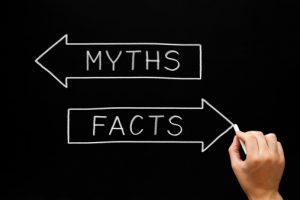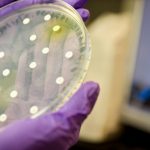 Whether it’s an old wives’ tale, or information that spreads through the grapevine, there are many “facts” out there in regards to the medical world which frankly, just aren’t true. The problem arises when we use these myths as facts and start to believe them. Not only can believing myths affect our health, but we can potentially harm others by continuing to spread the word. Here are some common medical myths that are not as factual as you believe. It would be wise to stop spreading them.
Whether it’s an old wives’ tale, or information that spreads through the grapevine, there are many “facts” out there in regards to the medical world which frankly, just aren’t true. The problem arises when we use these myths as facts and start to believe them. Not only can believing myths affect our health, but we can potentially harm others by continuing to spread the word. Here are some common medical myths that are not as factual as you believe. It would be wise to stop spreading them.
4 common medical myths busted
Myth 1: Incontinence is part of aging
Advertisement
 Incontinence, or loss of bladder control, is often associated with the aging process. As we get older our body simply does not work the same as it used to. Typically, older women will experience incontinence more, but it is not due to aging.
Incontinence, or loss of bladder control, is often associated with the aging process. As we get older our body simply does not work the same as it used to. Typically, older women will experience incontinence more, but it is not due to aging.
Incontinence is a result of weak bladder muscles, and this can occur at any age. Other factors for incontinence include being overweight, having a child or having a medical condition. In either case, incontinence is not a result of aging.
If you are concerned about incontinence, keep your bladder muscles strong by practicing Kegels. To complete these exercises, contract your bladder muscles as you would to hold in urine. Hold this position and release. This is an easy exercise that be done anywhere at any time, so why not boost your bladder muscles every day?
Myth 2: We all possess cancer cells
 You may have heard that we all have cancer cells lingering in our bodies. The myth said that individuals develop cancer because these cells become active. Although it is true that cancer is a result of mutated cells, it is not based on cells that contain cancer already in the body.
You may have heard that we all have cancer cells lingering in our bodies. The myth said that individuals develop cancer because these cells become active. Although it is true that cancer is a result of mutated cells, it is not based on cells that contain cancer already in the body.
These mutations in cells, which can be inherited from parents, are more commonly acquired through lifestyle habits and environmental factors. Additionally, each cell goes through a process where it determines if it is healthy and should divide. Cancer can occur when unhealthy cells divide. This is an error that happens within a cell’s lifecycle, not necessarily something we are born with.
Myth 3: Heart attacks are always associated with chest pains
Although a common symptom of heart attack is chest pain, don’t be surprised if this symptom doesn’t occur. In fact, many people can develop other symptoms – shortness of breath, back pain – without ever experiencing chest pains. It’s important to know other symptoms of a heart attack. If you don’t experience the chest pain you may end up with a deadly heart attack because you ignored the other signs and symptoms.
Myth 4: We all need eight hours of sleep
 We are not all made the same, so what may work for once person isn’t necessarily the golden rule for all. Although numerous studies have been conducted on the benefits of sleep and have shown eight hours to be a good number, we do have to keep in mind we are all unique.
We are not all made the same, so what may work for once person isn’t necessarily the golden rule for all. Although numerous studies have been conducted on the benefits of sleep and have shown eight hours to be a good number, we do have to keep in mind we are all unique.
Seven to eight hours has been shown to be ideal for sleep, but don’t think you’re abnormal if you get in less. Many people can function with less sleep. On the other hand, if you find you can’t sleep, you should speak with a doctor. It’s possible there’s another issue that may be hindering your ability to sleep.
These are just four common health myths that you might have heard. Some may impact our health and others should just be stopped in their tracks. So the next time you get the latest scoop on health news, try to validate the source.
Related Reading:
4 myths that are ruining your skin
It seems the older we get, the less we care for our skin – just when we need it the most! Our skin thins as we age, making it more vulnerable to the elements. Over time, we lose collagen, too, the protein that gives our skin support and firmness. Continue reading…
Advertisement
Fact or myth? Cracking knuckles causes arthritis
You’ve most likely heard the phrase, “Don’t crack your knuckles or you’ll get arthritis.” This may have stopped you for the time being, but once no one was around, you probably went right back at it. (It feels so good!) Continue reading…
Sources:
http://www.hopkinsmedicine.org/news/publications/jh_bayview_news/winter_2015/fact_or_fiction?utm_medium=social&utm_source=Twitter&utm_campaign=Health&utm_term=5MedicalMyths&utm_content=General
http://www.menshealth.com/health/it-true-we-all-have-cancer-cells
